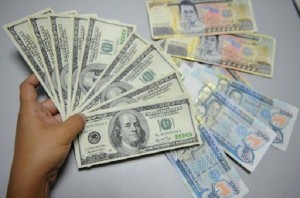The Asian Development Bank (ADB) has approved a $300-million (P12 billion) loan to the Philippine government to replace 100,000 gasoline-powered tricycles throughout the country with more energy efficient electric units and kickstart the transition to a sustainable nationwide transport program.
In a statement, the ADB said it was also administering a $100-million loan and a $5-million grant from the Clean Technology Fund for the e-trike project, while the Philippine government would provide a $99-million counterpart fund. This would bring total financing for the project—to be rolled out through the next five years up to December 2017—to $504 million (P20 billion).
“E-trikes are a cleaner, greener transport solution for the Philippines and they would provide a better quality of life for the trike drivers. This project can help transform transportation in the country and position it as a leader in electric vehicle development in Asia,” said Neeraj Jain, ADB country director for the Philippines.
“This project will lessen the Philippines’ dependence on foreign oil and, by fabricating and assembling the tricycles domestically, would create up to 10,000 jobs in its five-year implementation,” said Energy Undersecretary Loreta G. Ayson.
The ADB said replacing the 100,000 gasoline-engine trikes would result in savings of more than $100 million (around P4 billion) a year in fuel imports, while decreasing annual carbon dioxide emissions by about 260,000 tons.
At present, more than 3.5 million motorized tricycles ply the country’s roads, producing more than 10 million tons of carbon dioxide and consuming nearly $5 billion (P200 billion) in imported fuel yearly.
These gasoline-fuel tricycles, which are responsible for more than two-thirds of the air pollution generated by the transport sector nationwide, serve as short-distance taxis, with the average tricycle driver earning less than $10 (around P400) a day.
With e-trikes, which can carry more passengers, drivers will save upwards of $5 (P200) a day in fuel costs. E-trike drivers saw their daily incomes more than double during a pilot program in Metro Manila.
The e-trikes, which run on an electric motor and rechargeable lithium-ion battery, will be introduced in Metro Manila and other urban centers across the Philippines under a lease-to-own arrangement.
Ayson said seven companies—three them local firms—had prequalified to build the e-trikes. The ADB has yet to announce the winning bidder.
Sohail Hasnie, principal energy specialist at ADB, said earlier he expected at least 100 e-trikes to begin plying Philippine roads soon. The plan is to initially roll out 20,000 units on key islands like Boracay and Puerto Princesa, and parts of Metro Manila.
Hasnie said the ADB was also looking at putting up five pilot charging stations to ensure the viability and sustainability of the e-trikes project. The target, he said, was to make sure the power used by the e-trikes would cost much less than the fuel used by regular tricycles.
The e-trike project is supported by local auto parts makers led by the Motor Vehicle Parts Manufacturers Association of the Philippines and the Electric Vehicle Association of the Philippines.


